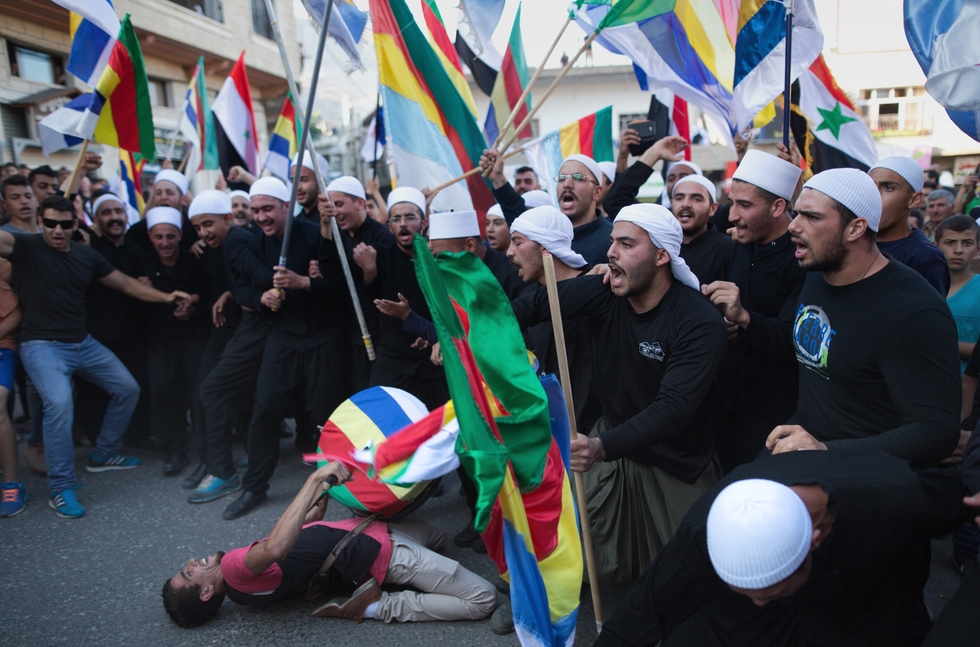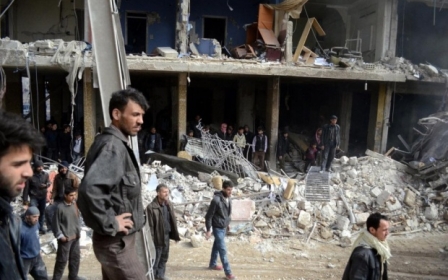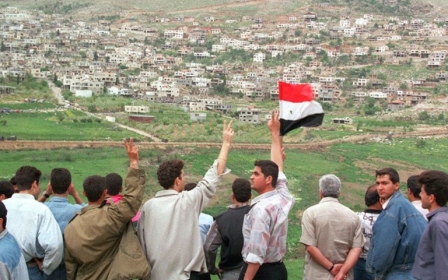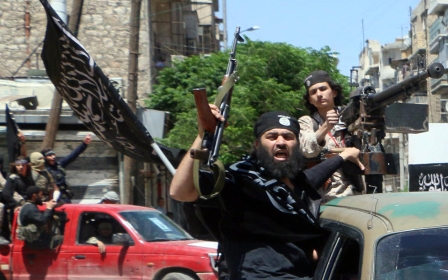Syria arrests Al-Nusra member over Druze bombing

Syrian authorities have detained a member of Al-Qaeda affiliate Al-Nusra Front who allegedly admitted the group's responsibility for a double bomb attack in the country's Druze heartland, state media said on Sunday.
The arrested man, named as Al-Wafed Abu Tarabeh, reportedly also confessed that the group was behind attacks on government property in Sweida city after the bombings, which killed 31 people.
"Authorities in Sweida today arrested the terrorist Al-Wafed Abu Tarabeh, who confessed to responsibility for the two terrorist bombings on Friday," state news agency SANA reported.
State television identified Abu Tarabeh as a member of Al-Nusra.
"The terrorist also confessed to participation in the attacks on the military police and security branches... in addition to acts of vandalism and theft in Sweida," SANA said.
Twin bomb attacks hit Sweida on Friday night, killing 31 people, including prominent Druze cleric and government critic Sheikh Wahid al-Balous.
After the attacks, residents pelted government buildings with stones, accusing the Assad government of being behind the bombings.
Angry crowds including armed men also attacked two security buildings in the southwestern city, killing at least six government security personnel, the Syrian Observatory for Human Rights said.
The Druze, who follow an offshoot of Islam, have been divided during Syria's civil war, with some members fighting on the government side and others sympathising with the opposition.
Balous was a popular figure among the minority, which made up around three percent of Syria's pre-war population of 23 million.
He led Sweida's most powerful militia in battles against Al-Nusra and the Islamic State group, but also opposed conscription of Druze men into the Syrian army's dwindling ranks.
Analysts said his death would likely benefit Syria's government, which was angered by his opposition to conscription and his desire to keep the Druze independent.
"Balous was a major problem for the regime because of his outspoken criticism," wrote Stephen Tuite, for Conflict News.
"Chief among these was his opposition to the drafting of the Druze to fight for the Assad regime. Most Druze decided to form local protection militias in response to the attempts by the Assad regime to draft members of their communities. Balous also was an advocated for Druze autonomy and a supporter of the Syrian Opposition.
"Whatever happened, this event is going to increase tensions among the divided Druze community. We have already seen footage of protests in response to this attack.
"No matter where the Druze stand politically, there is nothing more important to them then their community. Most would consider this assassination unacceptable."
New MEE newsletter: Jerusalem Dispatch
Sign up to get the latest insights and analysis on Israel-Palestine, alongside Turkey Unpacked and other MEE newsletters
Middle East Eye delivers independent and unrivalled coverage and analysis of the Middle East, North Africa and beyond. To learn more about republishing this content and the associated fees, please fill out this form. More about MEE can be found here.




